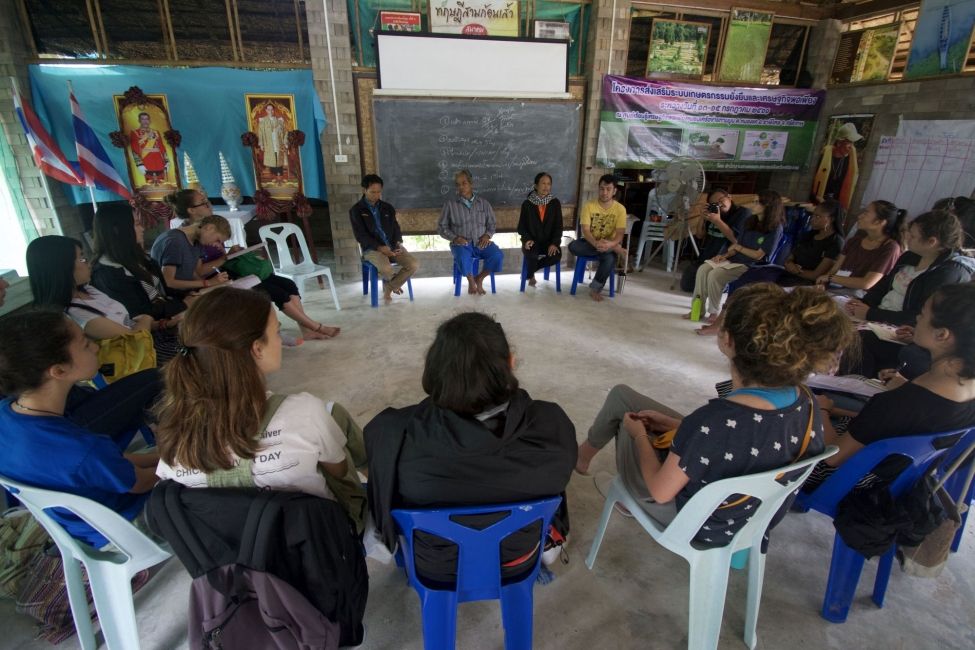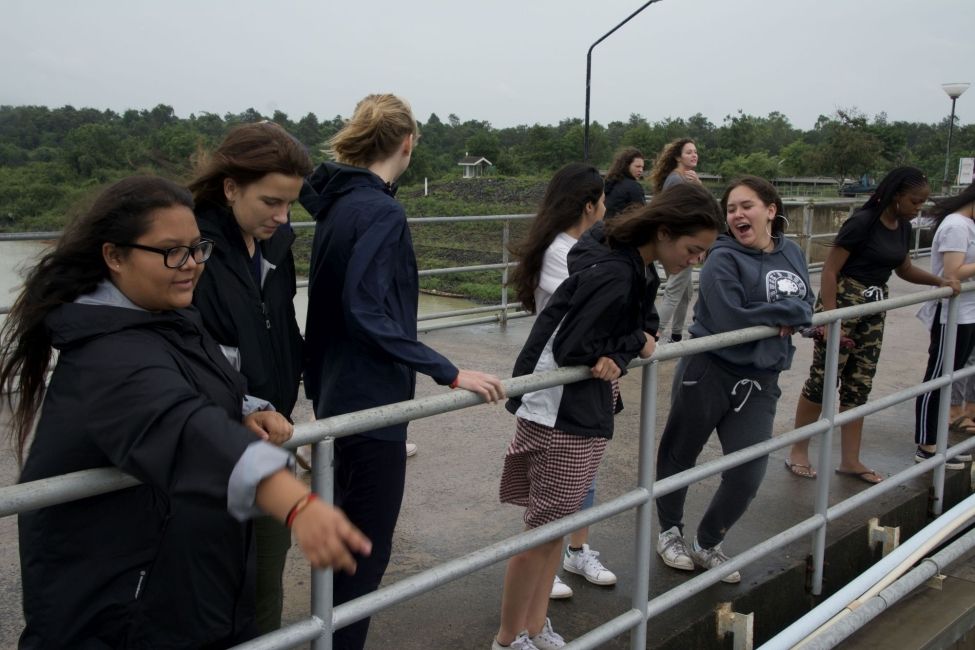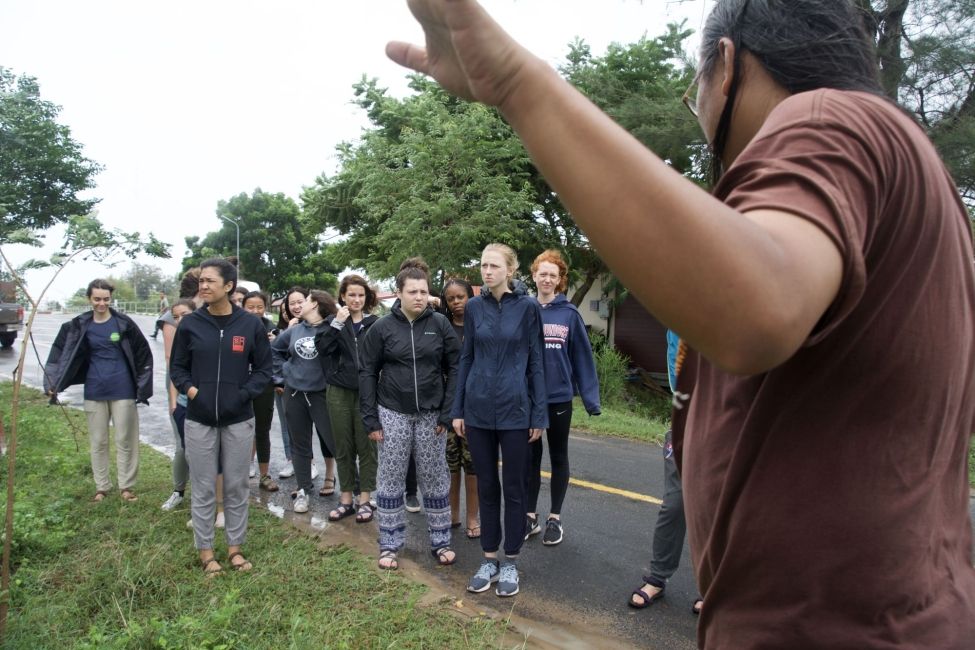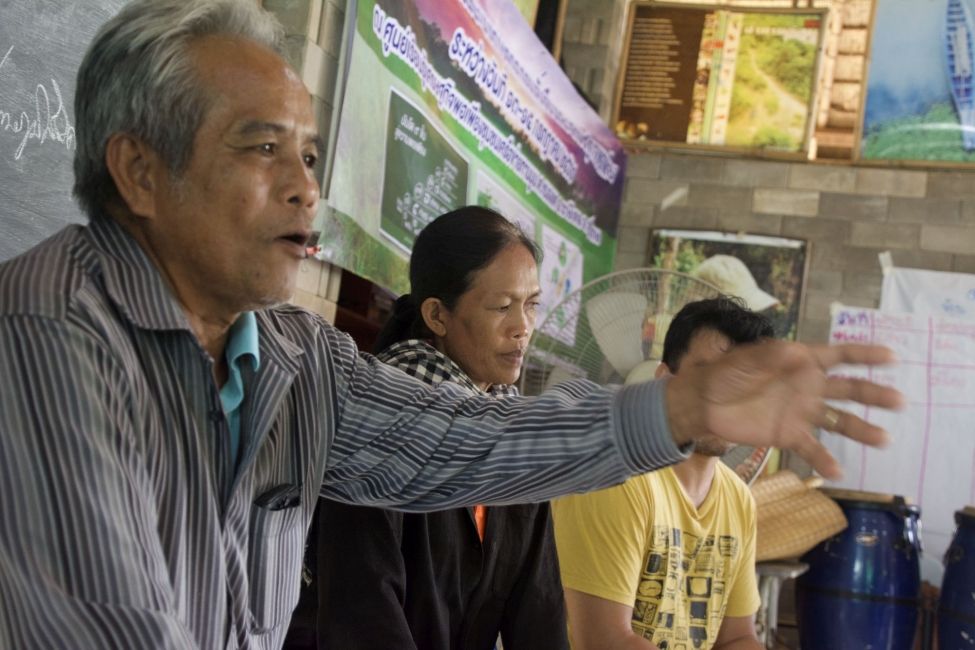Dams, Grassroots Organizing, and Exchanges: Our First Community Visit!
Written by Program Leader Mike Eckel
From July 16-18th our students visited the Rasi Salai community in rural Si Sa Ket province. Rasi Salai faces environmental crises due to flooding caused by a local dam built in 1992. This is also the community where students will lead an English camp for the final project. Throughout the two days students exchanged with local villagers, met with local teachers to begin planning the English Camp, and spent the evenings and nights with host families.
The students visit to the dam on the first afternoon allowed them to see the scale of local environmental destruction caused the by the dam. Behind the dam begins 100,000 rai of land now flooded with trapped water, stretching over 3 provinces. Students learned that flooded land in the Rasi Salai community once offered locals both wetlands used to scavenge native plants as well as land for animals to graze. In fact, local communities once sustained themselves entirely from this land.
The next morning. Students had an opportunity to exchange with four village representatives. The students heard first-person stories about the history of the dam, grassroots community organizing, and how the dam has changed livelihoods, culture & food sources. Many students felt that the exchange was the most essential learning moment throughout the program. To conclude the exchange, the four representatives asked our students to consider how lessons on grassroots organizing learned from Rasi Salai can be applied to local environmental issues back home—a question we hope students continue to reflect upon well after returning.
That afternoon, teachers from local schools and youth representatives met with our students to begin planning the English camp. The teachers challenged our students to create lessons and activities which engage students far beyond the norm of English class at school. As well, the teachers asked that each lesson addresses vocabulary related to the local environment. Our students took to the challenge and began drafting a schedule, lessons and activities that will strive to meet these expectations.
After each days scheduled activities, students were dropped off to two host families. Throughout both evenings students received a rare opportunity to experience family life in rural Thailand. The students came back with stories about delicious food, encounters with cute farm animals, and new fan followings (aka the neighborhood kids).
On Wednesday afternoon, students return to Khon Kaen and stepped into the next phase of our program—camp planning, a national park visit, and finally, the English Camp!
Related Posts
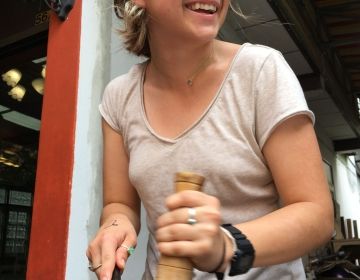
Homestay Prep and Khon Kaen Adventures
This week has been all about practicing Thai and learning about the environmental impacts of gold mining. The students spent time preparing for their upcoming community homestay by creating a... keep reading
Out with the Bad, In with the Good; Well Wishing During Traditional Baci Ceremony
After countless hours of travel by plane and van, we have arrived to the study center in Khon Kaen! Everyone is recuperating well from our long travel days and they... keep reading
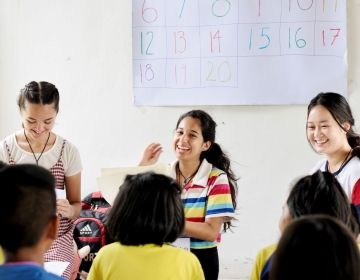
Sisaket, Sisaket, Ooohhh Sisaket
Our final project was the English camp which took place within the first few days of our last week here in Thailand. Kids from different schools around the Sisaket area... keep reading
